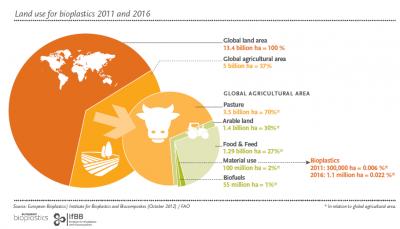Biome investigates lignin for bioplastics

Biome has partnered with the University of Warwick’s Centre for Biotechnology and Biorefining in the UK, which is conducting research into lignin degrading bacteria.
The firm is working with the Warwick team to develop methods to control the lignin breakdown process to determine whether these chemicals can be extracted in significant quantities.
Lignin use
Lignin is a waste product of the pulp and paper industry and is potentially an abundant feedstock that could provide the foundation for a new generation of bioplastics, claim Biome.
The consortium has been awarded a £150,000 grant from the UK’s innovation agency, the Technology Strategy Board to investigate the bio-based alternative for oil derived organic chemicals used in the manufacturer of bioplastics.
The grant will support a feasibility project to isolate a chemical from lignin to replace the oil-derived equivalent currently used in a polyester that conveys strength and flexibility in some of Biome’s products.
Production of such a bio-based polyester would reduce the cost and enhance sustainability of the products, said Biome.
If the initial feasibility assessment is successful, Biome will explore the possibilities for deriving a wide selection of bio-based aromatic chemicals from lignin, reducing cost and expanding bioplastic functionality.
Biome works in markets including packaging, food service, industrial, office products and electronics.
Bioplastics battle
Although bioplastics can be based on natural materials, some oil-based chemicals are used in their manufacture to convey properties including mechanical strength, tear resistance and durability.
Deriving these chemicals from a plentiful and natural source could reduce costs, expand functionality and increase performance in bioplastics, enhancing their ability to compete with, and potentially replace, conventional oil-based plastics.
The Technology Strategy Board identified the potential of industrial biotechnology to help the chemical industry move away from a dependency on fossil resources to a bioeconomy based on renewable and biological compounds.
Paul Mines, CEO of Biome Bioplastics, said that the bioplastics market remains small compared to that of fossil-based polymers.
“Growth is restricted by the price of bioplastic resins being 2-4 times that of their petrochemical counterparts. We anticipate that the availability of a high performance polymer, manufactured economically from renewable sources would considerably increase the market.”












